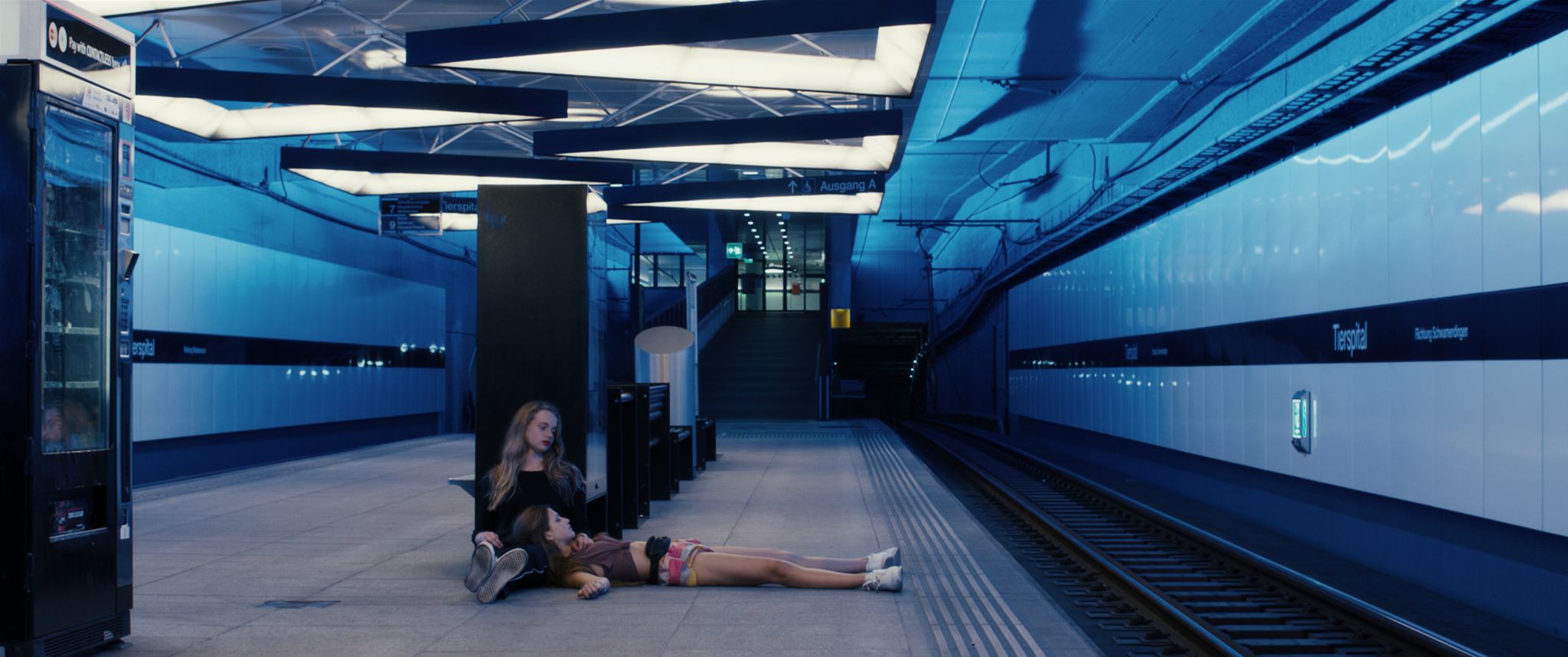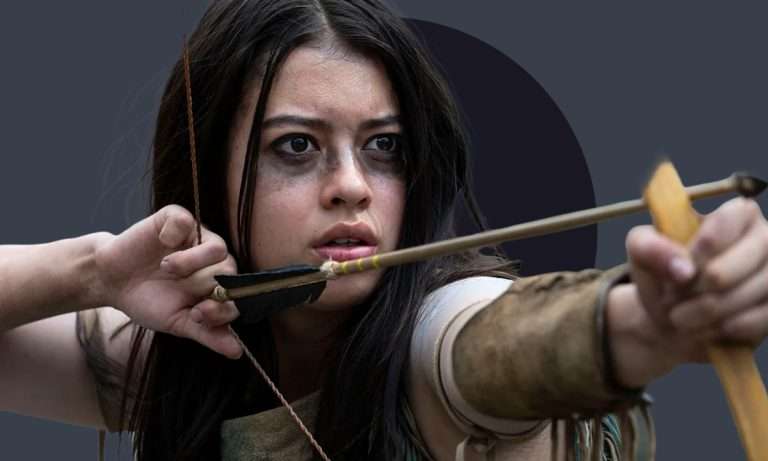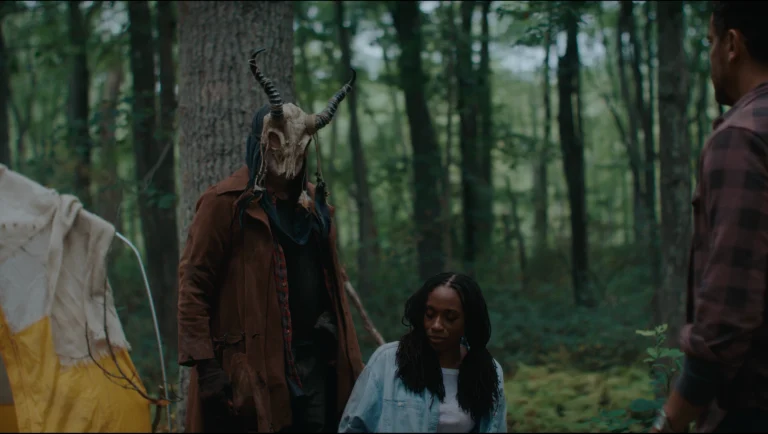Blue My Mind [2018] – A Familiar yet Impressive Coming-of-Age Fable
The female perspective on growing-up and adolescence has long been presented in a rawer (non-romantic) and surrealistic manner. Monstrous, supernatural transformation as a metaphor for female puberty and sexual awakening serves as a sort of response to the society’s attitude towards adolescent girls, who are shamed for their sexuality and increasingly preached chastity. Carrie (1976), The Company of Wolves (1984), Ginger Snaps (2000), When Animals Dream (2014), Raw (2017), and Thelma (2017) are some of the female sexual coming-of-age movies, where physical changes after first menstruation alongside the persistent social pressures thrusts the girl protagonists into the realm of supernatural horror. Nevertheless, these heroines learn to embrace their inner demons and forge a path towards empowerment rather than bear the symbolical bruises of victim-hood. Swiss actress-turned-film-maker Lisa Bruhlmann’s Blue My Mind (2018) is the latest well-crafted feature to regard the taboos related to awakening of female sexuality combining it with the usual teenage issues of self-acceptance, identity, and alienation.
Fifteen-year-old Mia (Luna Wedler), fraught with anxiety, relocates with her well-to-do parents to a new home. At her new school, Mia is fascinated by some ‘cool’ kids. She shuns a kind, well-meaning classmate to join the clique of delinquents, headed by Gianna (Zoe Pastelle Holthuizen). Mia follows Gianna and her underlings around, playing choking games, popping pills, boozing, shoplifting, etc. Driven by their provocative talks of sex, Mia even creates an online dating profile and connects with a middle-aged guy. Subsequently, the threads linking Mia to her parents starts to unravel. Like all teenagers of the age, she wonders whether she was adopted and rummages through family albums to see the photo of her mother being pregnant.
Mia’s parents are slightly overbearing, clueless, and couldn’t be trusted by their daughter as a confidant. “You have everything, for heaven’s sake!”, Mia’s father rages over his girl’s misbehavior. But he doesn’t understand that the ‘everything’ – sophisticated, materialistic living — doesn’t soothe Mia’s feelings of imprisonment, both within her body and society. The parents are concerned, although they try to rationalize situations, juggling between the options of therapy and strict dialogues. Mia’s newfound companions are also like a ticking-bomb, an animalistic pack over-reliant on sensual pleasures. By the time Mia menstruates and loses virginity (the sexual experience, however, is more mechanical than pleasurable), her body shows signs of rebellious transformation. The more unprecedented Mia’s metamorphosis becomes, more extreme is the nature of her self-destruction.
Writer/director Lisa Bruhlman’s portrayal of adolescence isn’t entirely idiosyncratic, but she skillfully uses visual moments to deeply convey the mood and emotions without overtly emphasizing on action and dialogues. She opens the movie with an eerily fascinating shot of a girl child, standing alone on the beach. The shot imbues a sense of peculiarity and mystery, a mood-setting visual to instantly engage the viewer, although we aren’t sure of its significance in the narrative (except that the child might be Mia). Similarly, Lisa conjures distinct, seemingly random visuals to make Mia’s inner journey more contemplative and intimate. As in Julie Ducornau’s ‘Raw’, Blue My Mind follows the glum aesthetics of French-extreme horror, but still conveys an uplifting message of liberation and self-acceptance.
Director Lisa and her cinematographer Gabriel Lobos trickles the visuals with aqueous references (stormy sea, gurgling aquariums, overflowing bathtubs, etc). The water in day-dreams and nightmares constantly threaten Mia, relating the drowning to her eventually capitulation to adolescent angst. However, the supernatural transformation offers Mia the chance to swiftly maturate and break away from the harsh monotony of reality (even though the ‘swimming-through-choppy-waters’ thing is made quite literal). Blues and greys dominate the color palette, indicating the sterile atmosphere and the emotional pain churning deep within. At the same time, the odd presence of pinks during the parties and the lush yellow of outdoors bring a welcome relief, illustrating the prospects of escaping from societal mores and constraints.
Lisa also shows due restraint in presenting the themes, providing due space for audiences to engage with and think about the developments. Despite suggesting fairy-tale or mythological notions, the writing remains as realistic as possible. The sensual lyricism of the images doesn’t push the film-maker to take reality for granted. And, there are quite a few mellow, humorous moments, dispelling the bleaker style of Cronenberg-ian body-horror. The strong bond Mia gradually develops with Gianna is one of the well-written portions of the narrative. Initially, Gianna comes across a typical rich bully, acting out to suppress the thoughts of parental abandonment. But by the end Gianna also goes through change and becomes an important figure in Mia’s quest towards liberation. Their silent friendship contrasts the other skin-deep emotional developments in the movie.
Perturbing and beautiful in equal measures, Blue My Mind (97 minutes) gracefully walks through the fertile thematic grounds of a girl’s volatile transition during adolescence, by marrying the real with the fantastical.
★★★½
“BLUE MY MIND” WAS SCREENED AT THE 2018 FANTASIA INTERNATIONAL FILM FESTIVAL.
CLICK HERE FOR OUR COMPLETE FANTASIA COVERAGE.
DIRECTOR/WRITER: Lisa Brühlmann
CAST: Luna Wedler, Zoë Pastelle Holthuizen, Regula Grauwiller
COUNTRY: SWITZERLAND
DURATION: 97 MINS
LANGUAGE: GERMAN







![Live by Night [2017] : Vice, Rum And Wannabe Gangsters](https://79468c92.delivery.rocketcdn.me/wp-content/uploads/2017/01/Live-by-night-High-on-films-768x328.jpg)
